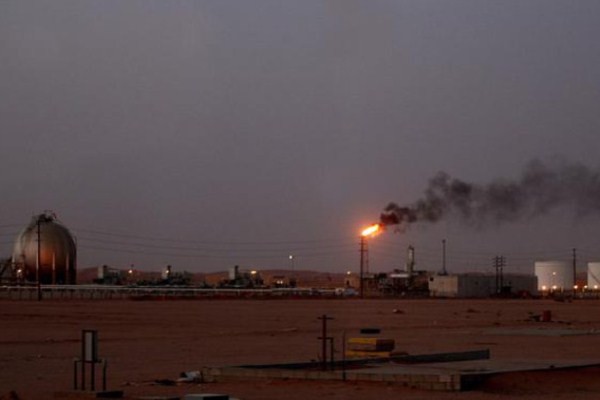Yemen’s effective ways to confront the coalition’s economic war
YemenExtra
SH.A.
The National Salvation Government has launched “painful options to confront the Saudi-led coalition economic war in effective ways”, which the Supreme Economic Committee announced on Sunday.
“The seven drone attacks targeting two oil pumping stations in the main oil pipeline between Ras al-Tanura and Yanbu, after careful monitoring and cooperation from the people of those areas,” was part of these new options, according to a statement issued by the Yemeni Armed forces on Tuesday.
The statement stressed that the attack “comes within the framework of the legitimate response to the crimes committed against Yemeni people, homeland and the ongoing economic blockade.”
“The Army Forces are able and ready to carry out more extensive and larger operations against the coalition countries,” the statement said, adding that “the solution in the region is to stop the aggression against Yemen.”
“We cannot be silent on the targeting of our people and our capabilities, and we have explained earlier in the statement issued by the Economic Commission that our choices have not yet begun,” the Minister of Finance Rashid Abu Lahawmi said in a televised statement late Tuesday.
“The bombing of the Aramco oil terminals is only the beginning of our confrontation to the economic war waged by Saudi-led coalition,” he said, adding that “We await the results of the negotiations with the UN envoy in the economic file held in Jordan and if it fails, the choices will be even more painful.”
The High Economic Committee of Sana’a said at the end of an emergency meeting on May 5 that it “began to study strong options to respond to the coalition’s economic war and in effective ways, and will raise it for political leadership within a week.”
A week later, the committee announced that it had “brought to the political leadership the available response options against coalition’s economic war and is waiting to receive the directives for implementation.”
“The international community and the United Nations are responsible for the repercussions that will be taken,” the source added.
The Economic committee’s warnings came after the coalition stepped up its economic war recently with measures to restrict the entry of oil derivatives shipping and the swift transfer of the Agricultural Credit Bans, the transfer of the international telecommunication provider “TeleYemen” and provider of Internet services “Yemen Net” to the Saudi-occupied city of Aden, as well as the continued suspension of salaries of Yemeni state employees.
“We have aerial photographs and coordinates of dozens of Saudi military headquarters, vital facilities and bases,” the spokesman for the Yemeni Army, Brigadier General Yahya Saree said, adding that “the entry of the Air Force in the battle has increased the objectives of the missile forces with 300 military targets.”
The first economic impact of the targeting of two oil pumping stations was the announcement by Aramco that it was halting the pumping of oil in the pipeline affected by the attack.
Although the company confirmed in a statement that “the supply of Saudi crude oil and gas is not affected by the accident,” the offensive operation has had immediate effects.
These effects were illustrated by the rise in oil prices on the world market on Tuesday, at a rate of 0.80%.
“The value of the futures contracts for the US intermediate West Texas crude amounted to 61.35 dollars a barrel, 31 cents higher,” the Reuters news agency reported in the wake of the drone strike.
According to economic agencies, the value of the shares of 162 of the 192 companies registered on the Saudi trading exchange registered a significant decline in the value of the shares after the attacks on Aramco’s oil pumping stations.
Reports from economists said that “the main index on the Saudi stock exchange recorded a decline of 8.3 points” due to the attack.
“The value of the assets on the Saudi stock exchange fell 2.52% since the start of trading,” inside sources reported.
Economists predict the growing impact of the attack on Saudi oil transport facilities, the world’s largest oil exporter, due to the decline in production and the high risk of damage to the durability and regularity of supplies, with the military and the committees confirming deeper and broader attacks if Saudi Arabia does not stop its war and blockade.

